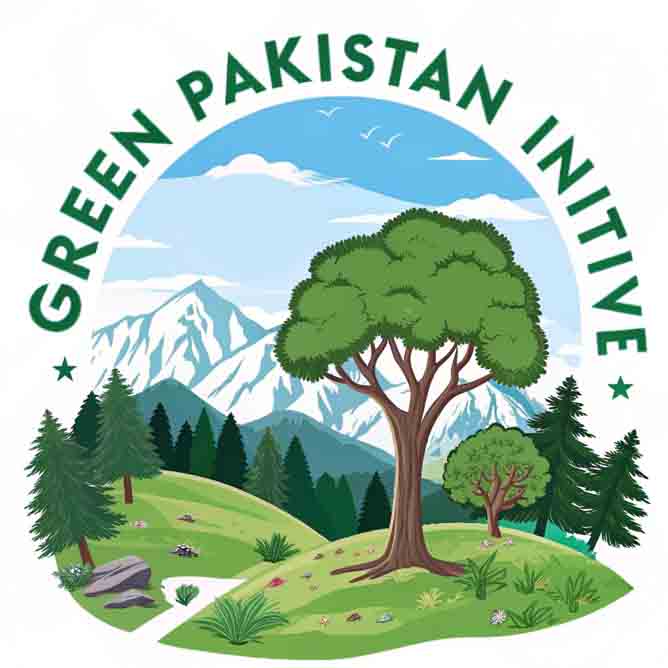Climate Action or Conflict? Green Pakistan Initiative Ignites Water Dispute Between Provinces
Green Pakistan Initiative aims for food security, but canal projects spark inter-provincial water conflict, threatening just climate action in Pakistan.
The Green Pakistan Initiative was launched as a flagship effort to combat climate change and ensure national food security. However, instead of uniting the country in a climate-positive cause, it has sparked a major water dispute between Punjab and Sindh, raising concerns about inter-provincial harmony and the equity of climate action.
Coinciding with both World Water Day and Earth Hour, this conflict underlines the challenges developing nations face in balancing environmental goals with socio-political realities. The question now stands—can climate action in Pakistan be truly just without consensus among its people and provinces?
Green Pakistan Initiative: A Vision for Climate-Smart Agriculture
Unveiled on 15th February, the Green Pakistan Initiative (GPI) promises to transform barren regions, particularly Cholistan in Punjab, into fertile land via corporate farming, foreign investment, and climate-smart agriculture.
Core Components of GPI:
-
Green Agri Mall
-
Smart Agri Farms
-
Agri Research and Facilitation Centre
These ventures aim to:
-
Mitigate food insecurity.
-
Promote carbon credit generation.
-
Modernize agricultural infrastructure.
-
Support poverty alleviation through employment.
However, the controversy lies in the construction of six new canals from the Indus River, perceived by many as a violation of Sindh’s water rights.
Canal Projects: A Flashpoint for Water Politics
The Indus River, lifeblood of Pakistan’s agriculture, has long been a source of contention between Sindh and Punjab. Sindh accuses Punjab of monopolizing water flows and violating the 1991 Water Accord.
Shocking Statistics:
-
Between 1999 and 2023, Sindh faced 40% water shortages, compared to Punjab’s 15%.
-
18 million acres of land in Sindh go unfarmed annually due to water scarcity.
-
The Cholistan Canal Project may impact up to 12 million acres of Sindh farmland.
The Indus River System Authority (IRSA) itself has acknowledged these disparities, yet the canal project moved forward without provincial consensus.
Sindh’s Response: A Struggle for Water Rights
Leaders, activists, and the civil society in Sindh have raised alarm bells. The program’s referral to ECNEC (Executive Committee of National Economic Council) despite opposition added fuel to the fire. Sindh’s representative in IRSA, Muhammad Ehsan Leghari, strongly opposed the initiative, citing risks of unemployment and crop loss for millions.
Public Outcry:
-
Massive protests in Hyderabad, Karachi, and Jamshoro.
-
Zulfiqar Ali Bhutto Jr. led demonstrations with Haqooq-e-Khalq Party.
-
Students at Jamshoro University faced tear gas and baton charges from police.
These responses echo the Kalabagh Dam opposition era, proving how deeply water rights are tied to provincial identity and survival.
Environmental & Ecological Impact on the Indus Delta
The potential environmental damage is just as significant. The Indus Delta, already threatened by reduced water flows, could see irreversible degradation.
Key Environmental Concerns:
-
Mangrove forests are dying, reducing natural storm barriers.
-
Fishing industry shrank by 80% in three decades.
-
Increased salinity in districts like Badin, Sujawal, and Thatta.
-
Disrupted migratory bird habitats near Haleji and Keenjhar lakes.
The lack of freshwater downstream from the Kotri Barrage has already altered the ecosystem. Further canal projects could worsen sea water intrusion, destroying both biodiversity and livelihoods.
Protests, Politics & Polarization
Politically, the issue has driven a wedge between the federal government and Sindh’s PPP leadership. While the federal narrative touts economic upliftment through foreign direct investment (FDI), Sindh calls it environmental injustice and economic marginalization.
Timeline of Key Events:
-
15 Feb: GPI officially launched.
-
1 Mar: First major protest led by Zulfiqar Bhutto Jr.
-
4 Mar: Student protest at Jamshoro University.
-
Ongoing: PPP distances itself from canal approval; federal officials remain silent.
The project’s lack of approval by the Council of Common Interests (CCI) further undermines its legitimacy and risks constitutional challenges.
Security, Sustainability & Social Harmony at Risk
Pakistan already faces a fragile security situation with persistent threats in Balochistan, Khyber Pakhtunkhwa, and parts of Sindh. The Jaffar Express hijacking, recent Gwadar bombings, and Quetta attacks highlight growing instability.
Launching a provincially divisive project amidst such volatility could:
-
Increase alienation in lower-riparian regions.
-
Spark civil disobedience movements.
-
Undermine national cohesion at a time when unity is critical for climate resilience.
Conclusion: The Need for Just Climate Action
The Green Pakistan Initiative, in its current form, threatens to derail Pakistan’s climate agenda by ignoring equity, inclusivity, and environmental balance. For Pakistan to truly combat climate change, it must pursue a just climate action framework that:
-
Prioritizes inter-provincial consensus.
-
Adheres to water-sharing accords.
-
Protects ecosystems and biodiversity.
-
Engages all stakeholders transparently.
Recommended Read: How Climate Change Affects Food Security in Pakistan
Internal Link: Pakistan’s 2025 Water Scarcity Forecast
Key Takeaways
-
The Green Pakistan Initiative aims for sustainability but lacks provincial consensus.
-
Sindh fears major losses to agriculture, ecology, and livelihoods.
-
Water rights remain a volatile issue threatening national unity.
-
Just climate action is essential for lasting peace and environmental justice.







